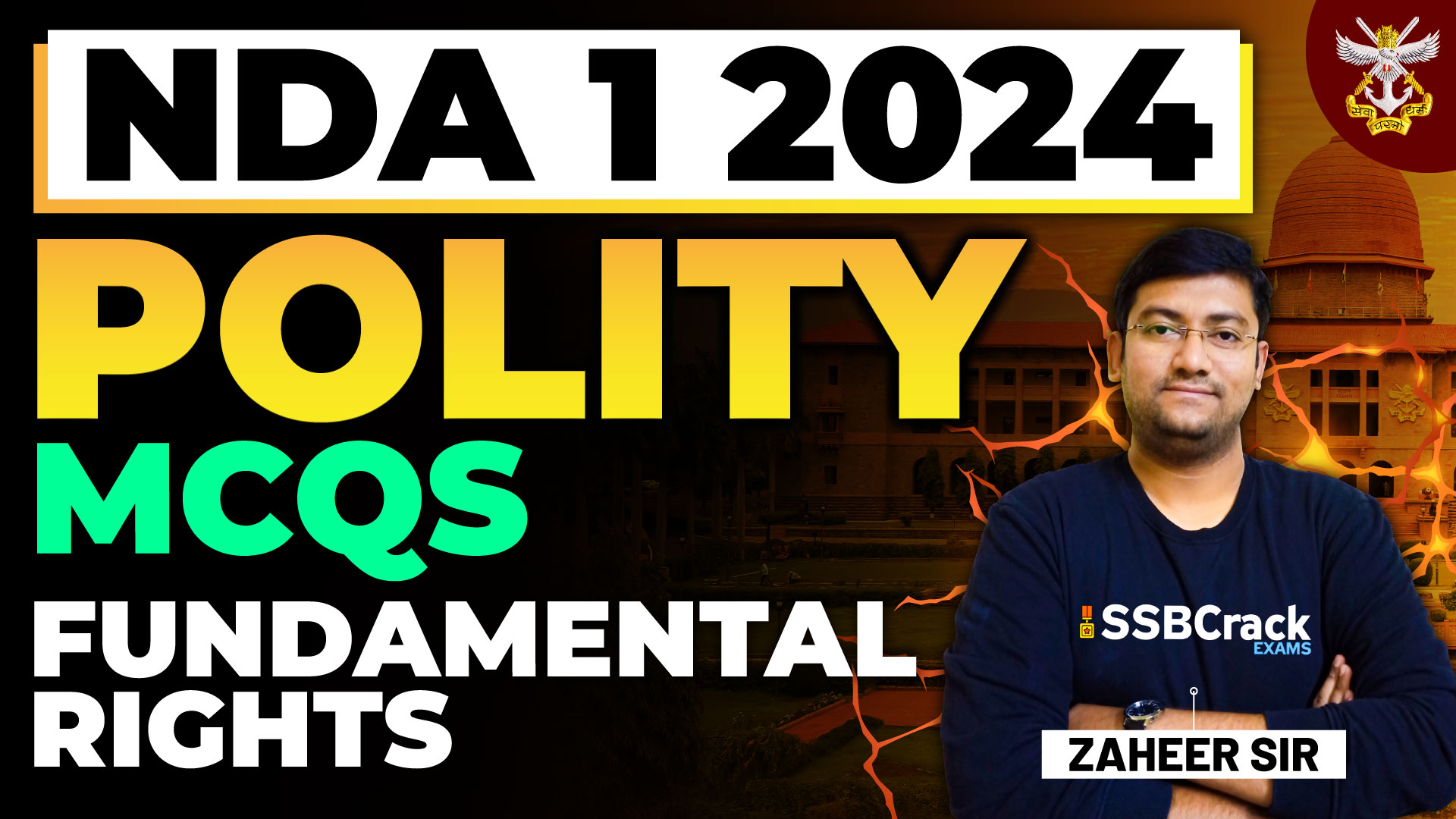In the vast landscape of competitive exams in India, the National Defence Academy (NDA) entrance stands out as a beacon of opportunity for countless young aspirants. The NDA exam not only evaluates candidates on their aptitude in various subjects but also tests their knowledge on critical aspects of India’s polity and governance. Among these, an in-depth understanding of Fundamental Rights in Indian Polity holds immense significance. Thus, the MCQ Solving Class tailored for NDA 1 2024 on this subject is not just another academic exercise; it’s a crucial stepping stone towards success.
Fundamental Rights, enshrined in Part III of the Indian Constitution, form the bedrock of democracy and citizenship in the country. These rights, ranging from the right to equality to the right to constitutional remedies, are not merely legal provisions but are intrinsic to the very essence of being an Indian citizen. Understanding their nuances is not just essential for cracking exams but also for fostering a deeper sense of civic responsibility among the youth.
The MCQ Solving Class focusing on Fundamental Rights serves multiple vital purposes:
- Comprehensive Understanding: These classes provide a structured approach to comprehensively understand each aspect of Fundamental Rights. Through systematic lessons and practice tests, students gain clarity on concepts, ensuring a strong foundation in this crucial area.
- Exam Preparedness: NDA exams are known for their stringent selection process. Mastery over MCQs related to Fundamental Rights is indispensable for excelling in these exams. These classes equip students with the necessary skills and strategies to tackle such questions effectively.
- Strategic Learning: The classes are designed to help students identify patterns, common pitfalls, and frequently asked questions related to Fundamental Rights. This strategic approach not only enhances their problem-solving abilities but also boosts their confidence during the exam.
- Holistic Development: Beyond exam-centric learning, these classes foster holistic development. By delving into the historical background, landmark judgments, and contemporary relevance of Fundamental Rights, students develop a broader understanding of India’s socio-political fabric.
- Empowerment: Knowledge of Fundamental Rights empowers individuals not just academically but also as responsible citizens. It instills in them a sense of awareness about their rights and duties, nurturing an informed and active citizenry essential for a vibrant democracy.
In conclusion, the MCQ Solving Class for NDA 1 2024 on Fundamental Rights in Indian Polity is not merely about cracking an exam; it’s about empowering the next generation of leaders with the knowledge and skills to navigate the complexities of governance and uphold the principles of democracy. By investing in such classes, aspirants not only enhance their chances of success but also contribute towards building a stronger, more enlightened society.
Fundamental Rights MCQs
Which One Among The Following Is Not A Fundamental Right Under The Constitution Of India?
A) Right To Equality
B) Right To Freedom
C) Right To Citizenship
D) Right Against Exploitation
Answer: C
Which Of The Following Is Not Guaranteed Under Article 19?
A) Right To Freedom Of Speech And Expression.
B) Right To Assemble Peacefully And With Arms.
C) Right To Form Associations Or Unions Or Co-Operative Societies.
D) Right To Move Freely Throughout The Territory Of India.
Answer: B
Which Of The Following Provides For Complete Equality Of Men & Women In India
A) Article 14 & 15
B) 5th Schedule
C) India Independence Act
D) Article 25
Answer: A
_________ Prohibits Discrimination On The Grounds Of Religion, Race, Caste, Sex Or Place Of Birth, Or Of Any Of Them.
A) Article 14
B) Article 15
C) Article 16
D) Article 17
Answer: B
Choose The Correct Statement With Respect To Freedom Of Speech And Expression In India?
A) It Is Enshrined In Part Iii Of The Constitution
B) It Is Not An Absolute Right To Express One’s Thoughts Freely.
C) It Can Be Suspended In An Emergency.
D) All The Above
Answer: D
For More MCQ’s On This Topic Refer To Below Video & Attached Pdf







